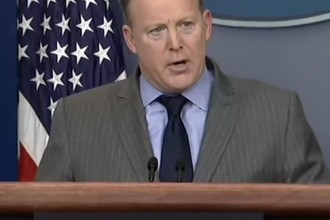In January, Justin Bieber and Selena Gomez engaged in a tight race with Roddy Ricch for No. 1 song and album respectively on Billboard charts. Roddy Ricch had the No. 1 song “The Box”, at the time of Bieber’s single release, Yummy. He also had the No. 1 album, Please Excuse Me for Being Antisocial, when Gomez released her album Rare. Both being in second place, Bieber and Gomez turned to social media, where Bieber plead for his fans on an Instagram post to add the song to a playlist and loop it on low volume overnight to increase stream numbers. Similarly, Gomez posted a video of her saying that “it’s not about numbers for me, but I would love for the most important album I’ve ever released to become No. 1.” Roddy Ricch, seemingly unbothered by their antics, tweeted twice for his fans to stream Bieber’s song and Gomez’s album, but his fans and the hip hop community criticized the two for trying to game the system. Fans continued to stream “The Box” and his album, giving them a wave of resurgence in streaming numbers and solidifying their spots as No. 1 in the charts. Please Excuse Me for Being Antisocial has now spent over three weeks at the top spot, making him the 6th rapper to do so in the last 10 years, and “The Box” is still the No.1 single in US Billboard 200 charts. Bieber and Gomez are not the only artists who have tried to blatantly inflate their streaming numbers, as record labels and other artists have engaged in creative marketing strategies to increase the popularity and streams of projects.
Last year, Jay-Z’s music and video streaming service Tidal was accused by Norwegian media outlets and artist associations for manipulating stream numbers on (at the time) Tidal Exclusive albums, Lemonade by Beyonce and The Life of Pablo by Kanye West. No investigation was ever launched as Tidal’s legal team released statements that the accusations were a part of a smear campaign. However, the threat of streams being manipulated by those in streaming services and labels with the power to do so was exposed.
“…stream manipulation is generally frowned upon by the music community, including fans, artists, and labels.”
Other streaming manipulation schemes include releasing a remix, or even multiple remixes, as Lil Nas X did with “Old Town Road”. He released several remixes with different artists over a period of months to keep his song popular to maintain the top spot and eventually break the record for longest running No.1 Billboard song. Memes and social media fads are another way for artists to capitalize on a song’s popularity and get people to listen to it. For example, the #MannequinChallenge craze that had everyone from children to celebrities participating in the viral challenge, made the Rae Sremmurd song “Black Beatles” jump from No. 9 to No. 1 in the week the challenge went viral. Other practices include “bundling” where album purchases are included with the purchase of artist or label merchandise, as well as releasing projects with few tracks to provoke repeat listening, or including many tracks to increase aggregate project streaming numbers. Obviously, musical content should be promoted and advertised to reach fans so that artist can receive recognition for their work. Yet, it is in the best interest of the music industry to do so in a way that does not resemble cheating or manipulation as this seems like an ingenuine “cash-grab” strategy.
“…attaining a No. 1 spot on charts is not just about creating a project that people genuinely enjoy, but also implementing an appropriate marketing strategy to generate virality around the music.”
Nielsen, the company that calculates streaming numbers for Billboard Charts, claimed that they have “mechanisms in place to protect against this kind of activity.” In addition, stream manipulation is generally frowned upon by the music community, including fans, artists, and labels. Earlier this year, an industry-wide coalition was formed by leading stream services, major record labels, and more to back an initiative targeting the detection and prevention of fake streaming practices. Not only does stream manipulation generate false benefits for artists and labels, but it distorts the public perception of certain projects by altering “algorithmic playback results.”
According to the Wall Street Journal, US streaming numbers were in the trillions last year. Therefore, attaining a No. 1 spot on charts is not just about creating a project that people genuinely enjoy, but also implementing an appropriate marketing strategy to generate virality around the music. As streaming service usage continues to grow, artists and others should continue to formulate ethical strategies to obtain charting success, so as to not exploit fans and the other parties involved in the music industry.








